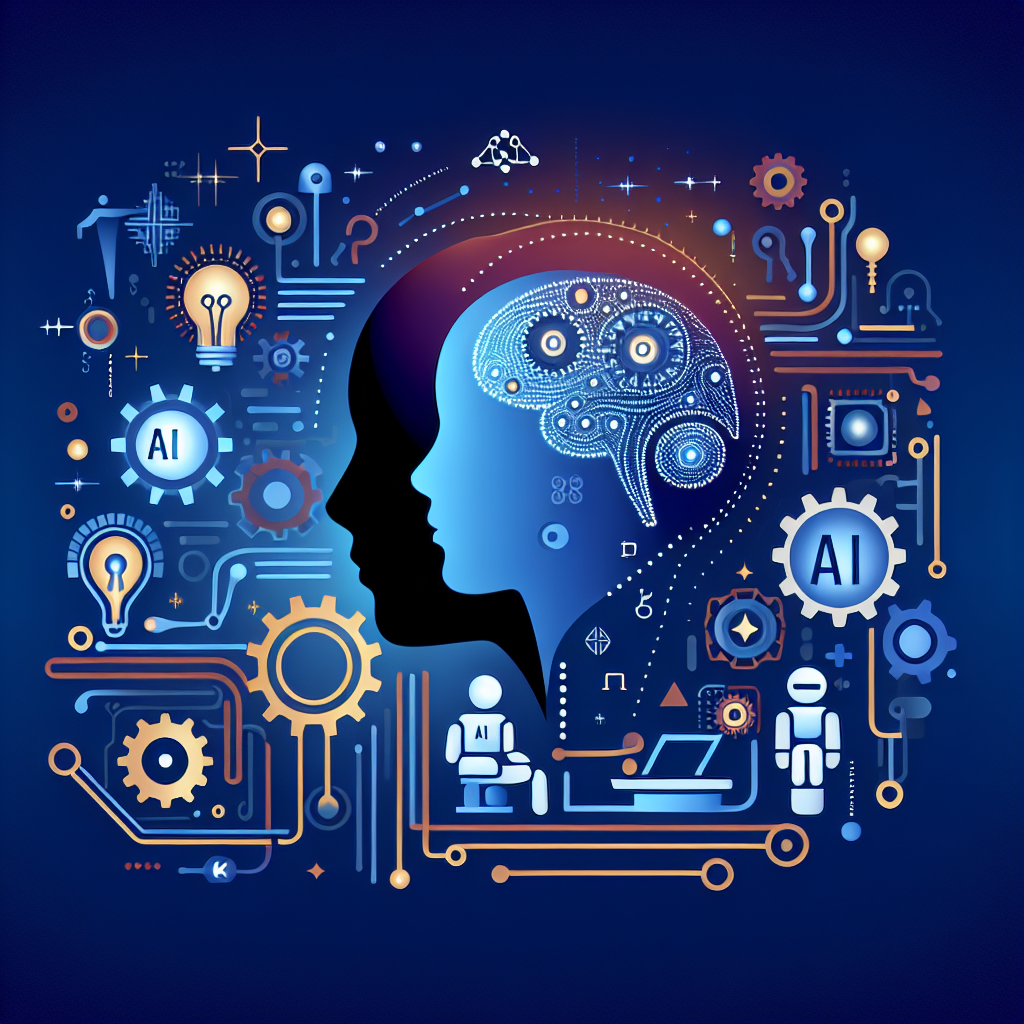Artificial General Intelligence (AGI) is revolutionizing the tech industry and beyond, with far-reaching implications for society as a whole. AGI refers to a type of artificial intelligence that can perform any intellectual task that a human can do. This level of intelligence surpasses narrow AI, which is designed to perform specific tasks or functions.
AGI has the potential to transform industries, disrupt traditional business models, and fundamentally change the way we live and work. In this article, we will explore how AGI is changing the game in tech and beyond, and what this means for the future.
1. Increased Automation
One of the key ways that AGI is changing the game in tech is through increased automation. AGI has the ability to learn and adapt to new tasks and scenarios, making it highly versatile and valuable in a wide range of industries. This means that tasks that were previously performed by humans can now be automated, leading to increased efficiency and cost savings for businesses.
For example, in the manufacturing industry, AGI can be used to optimize production processes, predict maintenance needs, and even design new products. In the healthcare industry, AGI can be used to analyze medical images, diagnose diseases, and assist in surgery. The possibilities are endless, and the potential for increased automation is vast.
2. Improved Decision Making
Another way that AGI is changing the game in tech is through improved decision making. AGI has the ability to process vast amounts of data, analyze complex patterns, and make decisions based on this information. This can lead to more accurate and timely decision making, which can have a significant impact on businesses and society as a whole.
For example, in the financial industry, AGI can be used to analyze market trends, predict stock prices, and identify investment opportunities. In the transportation industry, AGI can be used to optimize traffic flow, reduce congestion, and improve safety. The ability of AGI to make better decisions faster than humans is a game-changer in many industries.
3. Personalized Experiences
AGI is also changing the game in tech by enabling personalized experiences for consumers. AGI has the ability to learn and understand individual preferences, behaviors, and needs, allowing companies to tailor their products and services to meet the unique needs of each customer. This can lead to increased customer satisfaction, loyalty, and engagement.
For example, in the retail industry, AGI can be used to recommend products based on past purchases, preferences, and browsing history. In the entertainment industry, AGI can be used to personalize content recommendations based on viewing habits and interests. The ability of AGI to create personalized experiences for consumers is transforming the way companies interact with their customers.
4. Ethical Considerations
While the potential benefits of AGI are vast, there are also ethical considerations that must be taken into account. AGI has the potential to surpass human intelligence, leading to concerns about the impact on the job market, privacy, and security. There are also concerns about bias in AI algorithms, transparency in decision making, and accountability for AI systems.
It is important for companies and policymakers to address these ethical considerations and develop guidelines and regulations to ensure that AGI is used responsibly and ethically. This will require collaboration between industry stakeholders, policymakers, and the public to ensure that the benefits of AGI are maximized while mitigating potential risks.
FAQs:
Q: What is the difference between AGI and narrow AI?
A: AGI refers to artificial intelligence that can perform any intellectual task that a human can do, while narrow AI is designed to perform specific tasks or functions.
Q: How is AGI changing the game in tech?
A: AGI is changing the game in tech by increasing automation, improving decision making, enabling personalized experiences, and raising ethical considerations.
Q: What are the ethical considerations of AGI?
A: Ethical considerations of AGI include concerns about the impact on the job market, privacy, security, bias in AI algorithms, transparency in decision making, and accountability for AI systems.
In conclusion, AGI is changing the game in tech and beyond, with far-reaching implications for industries, businesses, and society as a whole. The potential benefits of AGI are vast, but there are also ethical considerations that must be addressed. It is important for companies and policymakers to work together to ensure that AGI is used responsibly and ethically, in order to maximize the benefits while minimizing the risks.

